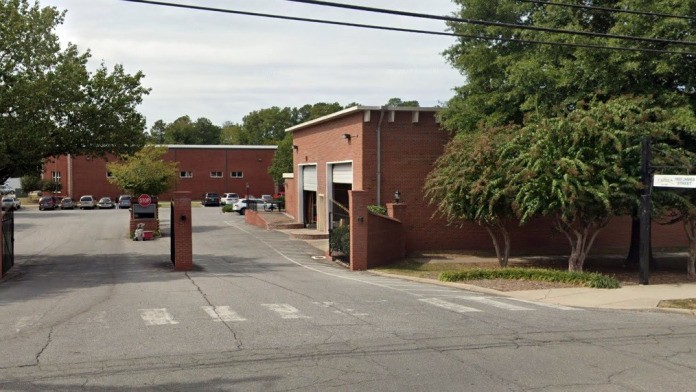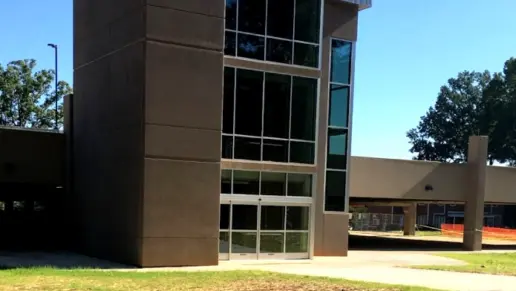About Triangle Residential Options for Substance Abusers
Triangle Residential Options for Substance Abusers (TROSA) is a residential drug and alcohol rehab facility for adult men and women located in Durham, North Carolina. They treat people with substance use disorder and alcohol use disorder. They are a not for profit organization and one of the unique things about the organization is that treatment is cost free. They are licensed by The North Carolina Department of Health & Human Services.
This program stands out because the residential program is long term — most people live in their facility for several years before reintegrating into society. TROSA is a voluntary program and you can call the facility to see about being admitted. You will need to be 18 or older with a substance use disorder and willing to live there long term.
TROSA provides evidence based treatment along with unique program elements like somatic therapy, trauma sensitive yoga, vocational training and mentoring. For the first 30 days, you will be in an internship program. You will be mentored by a senior resident and take classes in anger management and emotional regulation. After your internship, you will begin your community assignment.
The community assignment is a job that you will work at the facility. The assignment you get is determined by the staff and senior peers. They believe that working is an important part of recovery from addiction.
The community assignments are designed to teach residents responsibility and give them a sense of pride. The organization owns several businesses including a thrift store and a moving company in which residents work. Residences also work in the home itself. The staff will also help you find permanent employment before graduation.
To help you stay focused, you will have limited contact with your friends and family members for the first few months of residency. At your 12 month milestone, you can have on campus visits from family and friends. This is a peer run residential recovery home. You will have group therapy sessions and 12-step meetings at the facility. They have a professional staff that oversees operations.
Rehab Score
Gallery

Location
Other Forms of Payment
Addiction Treatments
Levels of Care
Treatments
The goal of treatment for alcoholism is abstinence. Those with poor social support, poor motivation, or psychiatric disorders tend to relapse within a few years of treatment. For these people, success is measured by longer periods of abstinence, reduced use of alcohol, better health, and improved social functioning. Recovery and Maintenance are usually based on 12 step programs and AA meetings.
There are many types of drug rehab in North Carolina. To receive treatment for addiction, you can choose from many inpatient and outpatient programs. Often, participants start with detox and work through a full continuum of care that continues with ongoing support for long-term recovery.
Many of those suffering from addiction also suffer from mental or emotional illnesses like schizophrenia, bipolar disorder, depression, or anxiety disorders. Rehab and other substance abuse facilities treating those with a dual diagnosis or co-occurring disorder administer psychiatric treatment to address the person's mental health issue in addition to drug and alcohol rehabilitation.
Opioid rehabs specialize in supporting those recovering from opioid addiction. They treat those suffering from addiction to illegal opioids like heroin, as well as prescription drugs like oxycodone. These centers typically combine both physical as well as mental and emotional support to help stop addiction. Physical support often includes medical detox and subsequent medical support (including medication), and mental support includes in-depth therapy to address the underlying causes of addiction.
Substance rehabs focus on helping individuals recover from substance abuse, including alcohol and drug addiction (both illegal and prescription drugs). They often include the opportunity to engage in both individual as well as group therapy.
Programs


Clinical Services
Clients who receive cognitive behavioral therapy in North Carolina typically attend five to 20 sessions. During this time, they work with their therapist to learn healthier patterns of thinking, which can help them change their behavior related to substance use.
Counseling that applies dialectical behavior therapy teaches you coping skills to apply to your daily life. The focus is on intense emotions and developing coping mechanisms to manage them. Therapy sessions are a series of teaching lessons that help you develop these coping skills.
Men and women enjoy a supportive environment within group therapy sessions for drug and alcohol addiction treatment. You can share your experiences and build connections with your peers while receiving encouragement from individuals who have faced similar challenges.
In individual therapy, a patient meets one-on-one with a trained psychologist or counselor. Therapy is a pivotal part of effective substance abuse treatment, as it often covers root causes of addiction, including challenges faced by the patient in their social, family, and work/school life.
If you're struggling with insecurity about your ability to make changes in your life, motivational interviewing in North Carolina could be a good solution. This type of therapy offers support and empowerment to help you explore your options and decide how to move forward with positive changes.
Trauma therapy addresses traumatic incidents from a client's past that are likely affecting their present-day experience. Trauma is often one of the primary triggers and potential causes of addiction, and can stem from child sexual abuse, domestic violence, having a parent with a mental illness, losing one or both parents at a young age, teenage or adult sexual assault, or any number of other factors. The purpose of trauma therapy is to allow a patient to process trauma and move through and past it, with the help of trained and compassionate mental health professionals.
If you've been smoking for a while, your body has become physically dependent on the addictive substance nicotine. To avoid unpleasant withdrawal as you quit smoking, you can use nicotine replacement therapy in North Carolina. This gives you controlled amounts of nicotine in the form of lozenges, inhalers, sprays, patches, or gum.
Accreditations

The Substance Abuse and Mental Health Services Administration (SAMHSA) is a branch of the U.S. Department of Health and Human Services. Established in 1992 by congress, SAMHSA's mission is to reduce the impact of substance abuse and mental illness on American's communities.
SAMHSA Listed: Yes
Contact Information
1820 James Street
Durham, NC 27707


